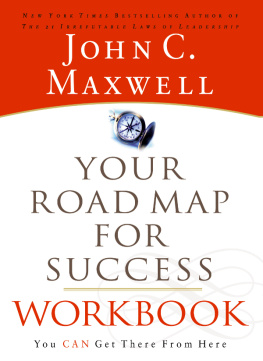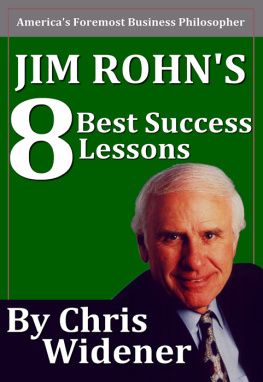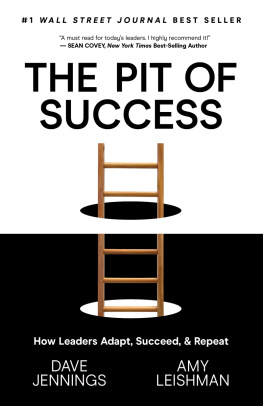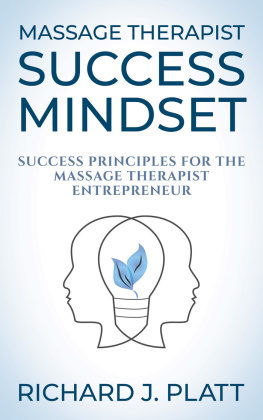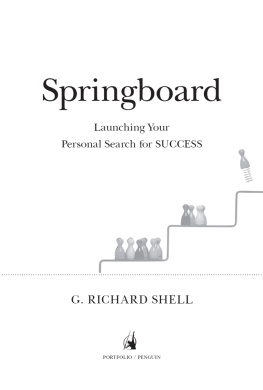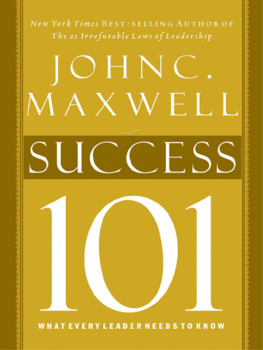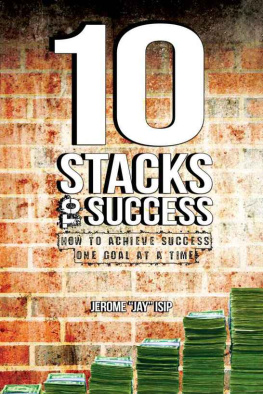The Success Mindset
of
Great Leaders
(It Aint the money!)
The Success Mindset
of
Great Leaders
(It Aint the money!)
YAEL EYLAT-TANAKA
Other Books by this author
TO THE READER : M. Carling is my alter ego assumed for some books of fiction.
Books written under pseudonym, M. Carling :
- Time Travel
- And Then There Were None (released 2016)
- Windswept Dunes The Burning Heart
- Windswept Dunes The Singing Sands (released 2016)
- Windswept Dunes Chameleon (released 2016)
Books written under my real name, Yael Eylat-Tanaka :
- Common Bits of Life
- Dreams Poems of the Mind
- Lake of Silence
- The Book of Values An Inspirational Guide to Our Moral Dilemmas
- The Compact Book of Values
- Diet Proof Your Life The Seven Essential Secrets of Success
- Diet Proof Your Life Action Book
- The Success Mindset of Great Leaders (It Aint The Money!)
- Fractal Dactyls Coloring Book for Adults
- SCREAMS! Three Short Stories of Terror
- Revenge of the Cat Woman
- Publish Your Book Using CreateSpace
- Publish Your Book on Kindle
- Publish Your Book With NOOK Press
- Publish Your eBook on Smashwords
- Publish Your eBook on BookTango
- Publish Your eBook Your Way
- The Natural Speaker The Art of Going From Fear to Fearless and Leaving Them Speechless
Copyright
Copyright 2016 @ Yal Eylat-Tanaka: The Success Mindset of Great Leaders (It Aint The Money!)
All rights reserved. No part of this publication may be reproduced or transmitted in any form, electronic or mechanical, including photocopying or emailing, recording or in any other form, in whole or in part, without prior permission of the author .
ISBN-13: 978-1533065353
ISBN-10: 1533065357
Email: Yael.prowordsmith@gmail.com
Acknowledgments
Many people have been instrumental in the creation of this book, from beloved professors to my family and friends who supported me during the preparation of this manuscript.
My very special thanks to my friend and colleague, Dr. John E. Christ for his unwavering support in steering my focus and helping me persist in my task to completion of this book.
Prologue
Are you happy?
Are you satisfied with your physical health?
Do you have enough money to enjoy life?
Do you love your family?
Do you have good friends?
Is enjoy your free time filled with activities and hobbies you enjoy?
Do you enjoy your job or occupation?
These questions are designed to elicit a psychological, emotional response. In fact, the deeper you delve into these questions, the more you will discover about yourself. These questions reflect how you feel about your life. Notice how you answered them: Was there a lot of Yes, but or Sure, if only they or I wish!
In the following pages, you will find that these intangibles are a matter of attitude not observable, measurable indices. The life you lead is entirely within your control: How much money you have, what car you drive, the people you spend time with all are within your control!
Read on. Allow the ideas herein to effect the change in your life that you are hungry for.
Contents
Chapter 1
Chapter 2
Chapter 3
Chapter 4
Chapter 5
Chapter 6
Chapter 7
Foreword
Success is what everyone claims to want; and yet, few are able to adequately define what it is. For many, success is fame and fortune, yet those that really achieve that goal are relatively few. In fact, s uccess is an ephemeral concept that needs constant shoring up and redefinition: Once you have achieved what you think is success, you have to keep working to maintain it! The definition of success is not a simple one, but the means to it are open to everyone who genuinely adopts its underlying principles. Curiously, many of those who do not enjoy what is popularly understood as success still claim to be happy. In fact, as we shall see, happiness is an integral part of the entire phenomenon of success.
All constructs, whether material or abstract, depend on certain building blocks; and all structures must have a foundation upon which to erect each subsequent level. Success is such a construct. From a sound foundation is built the edifice called success. The I-beams that support the roof must be constructed with integrity of materials and engineering catalysts if they are to support and reinforce the entire edifice. If one of these beams falters, cracks begin to appear, and in time the entire building can collapse. These beams are what the author calls pillars. They are not immediately intuitive, and require reflection to fully appreciate their relevance and importance in sustaining the overall structure called succe ss. No one pillar stands alone; multiple pillars are needed to build enduring success, and those pillars must be well anchored if the building is to bear the test of time.
The ancient Greeks believed that a sound mind and a sound body are interrelated and intimately connected. The concept of success exists within such a paradigm. Without the physical in which the mind is embodied, existence is not possible. Therefore, attention to the integrity of the body does affect how the mind can achieve desired goals. It follows that there are always physical as well as nonphysical elements which go into creating the best possible outcomes. The author has identified seven principles as essential pillars for creating success, although she is careful to note that many more principles figure into the equation to a greater or lesser degree, overlapping and bolstering the seven discussed herein. The seven qualities specifically examined are physical, emotional, intellectual, professional, financial, social and spiritual.
- The physical pillar represents our biological needs. Without physical wellbeing, stamina, food, drink and shelter, any efforts at self-improvement may be stymied by disabilities and impairments. Included is the environment: A homeless person does not have the same opportunity for success as one whose shelter and basic needs are met in a more secure environment. The author has included some notables in the field of physical health, including Kenneth Cooper, M.D. who has extolled the importance of active exercise and Arnold Schwarzenegger as a model of physical perfection in his career as bodybuilder.
- The emotional pillar comprises all those elements that bring the psyche into focus. Without stability of this pillar, success may be impossible to attain and maintain, or indeed, to recognize. The teachings of Freud, Adler, and Jung, amongst many, focus on this aspect of success.
- The intellectual pillar brings together all the education and training taken toward achieving lifetime goals. Albert Einstein immediately comes to mind as the best example. Intellectual prowess opens endless horizons, as does education and opportunity for learning and a nurturing intellectual curiosity. Enduring success depends on this pillar.
- The professional pillar is actually a combination of education productivity with dedication to a set goal. Being a doctor, lawyer, or Indian chief requires staunchness and single-minded commitment to the task. Here we can look to Jonas Salk and Louis Pasteur as examples of professionalism leading toward success. Indeed, many more visionary industrialists grace the pages of history as having risen to professional heights in the service of society. The author has included many such names in the text.
Next page

